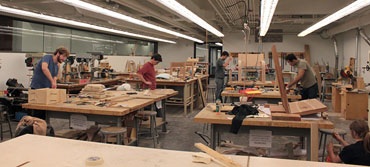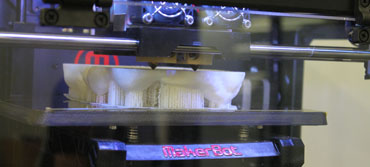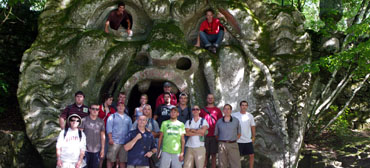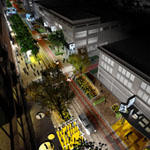Paradoxically, the world is becoming less dense as it becomes more urban, with most populations now residing in mid-sized cities or low-density urban areas. Urban designers and planners today are therefore increasingly tasked with devising design solutions for these extraordinarily complex settings.
The University of Arkansas provides a unique opportunity to work with practicing architects, urban design professionals, and ecological engineers at the U of A’s Community Design Center – one of America’s premier award-winning teaching offices in urban design. This unique program is dedicated to finding design’s role in solving for pressing public-interest issues through work on real-world projects with clients and stakeholders. The Community Design Center and its partners have developed a repertoire of place-making platforms in low impact development, context-sensitive street design, watershed urbanism, middle-scale housing, development-oriented transit, and agricultural urbanism that deliver public goods through design:
Agricultural Urbanism
Context-Sensitive Streets
Development-Oriented Transit
Low-Impact Development
Middle-Scale Housing
Watershed Urbanism
These platforms collectively yield a new ecology of the city necessary to engage the greatest ongoing challenge to planning and design: design within human-dominated ecosystems.
The M.Des. concentration in Resiliency Design is targeted to design leaders who want to connect social activism, public interest and design innovation in large-systems design. Students in this concentration will benefit from its unique combination of design and policy as they develop the knowledge required to address such diverse needs as context-sensitive street design, middle-scale housing, development-oriented transit, urban agriculture, low-impact development, and stewardship of urban watersheds.
The M.Des. concentration in Resiliency Design draws from the collective expertise of the U of A Community Design Center and the U of A Resiliency Center– both design-research centers that are part of the Fay Jones School. Having garnered more than 150 international, national and regional design awards, the UACDC is one of America’s premier teaching offices in urban design. This degree concentration is STEM-designated.
Curriculum
Cross-disciplinary, design-focused studio courses form the backbone of the M.Des. curriculum. Along with the studios, elective courses allow students to craft a forward-focused degree program to advance their own unique professional goals.
Sample Curriculum in Resiliency Design
Fall Semester (15 credit hours total)
- Advanced Design Studio 1
- Methods of Design Inquiry
- Vocabularies of Context Production*
- Sustainability 1: Analysis and Design of Resilient Systems*
Spring Semester (15 credit hours total)
- Advanced Design Studio 2
- Design Leadership
- Cities and Public Good*
- Sustainability 2: Decision Making, Analysis and Synthesis in Sustainability*
Summer (6 credit hours total)
- Graduate Residency
*Students pursuing the Resiliency Design concentration will choose four elective courses (12 credit hours) offered within the U of A Community Design Center, the U of A Resiliency Center or in sustainability, public policy, sociology, public administration or environmental dynamics under the direction of the graduate coordinator.
Faculty
Steve Luoni
Ken McCown
Gabriel Diaz Montemayor
The M.Des. at the University of Arkansas Fay Jones School offers design graduates
and professionals the opportunity for advanced targeted study. Students in this intensive
one-year program will achieve specialized knowledge by investigating critical and
emerging issues in advanced design studios, graduate-level electives and a professional
residency. Other concentrations in Health and Wellness Design, Integrated Wood Design and Retail and Hospitality Design are open for enrollment, and additional concentrations are planned.
Contact our Graduate Coordinator to learn more!









